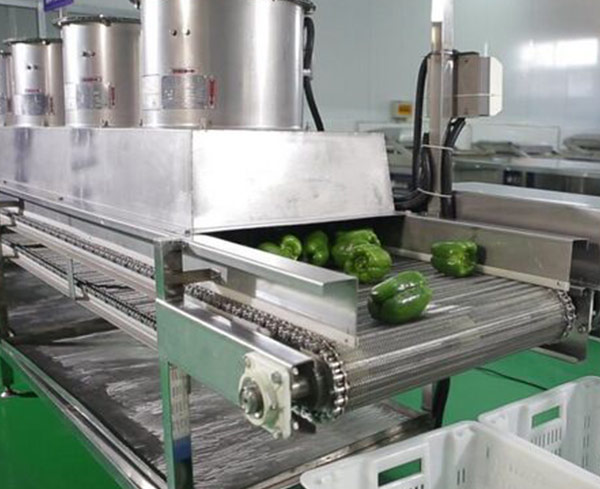24-hour service hotline:0755-29103270
Welcome to Shenzhen Zhongjing Global Purification Technology Co., Ltd.!

backtrackCurrent location:Home / Engineering / Food aseptic clean workshop
Author: Shenzhen Zhongjing Global Purification Technology Co., Ltd.Time:2018-07-26 14:39:40Views:1926

Central Kitchen is a type of food and beverage manufacturing industry. It refers to a food service that can provide more than 1,000 servings in a single meal, or a cooked food supply that can provide more than 2 food and beverage outlets in different locations. Or a manufacturer of ready-made foods that require only simple heating. After being distributed in the central kitchen, it costs about 30% less than traditional distribution. The central kitchen adopts a huge operation room, and all the links such as purchasing, selecting vegetables, cutting vegetables and seasonings are all responsible for the work. The semi-finished products and the adjusted seasonings are transported together to the branch within a specified time.
According to the general traditional food and beverage store model, a large store needs 5 vegetable pickers and 3 purchases. At the central kitchen headquarters, only 3 total purchases and 20 or so food choosers can save about 100 people. In addition to saving labor costs, due to unified procurement, it can also reduce procurement costs on a large scale; for example, the purchase of 100 tons of hairy belly is cheaper than the purchase of 10 tons of hairy belly per kilogram.
The advantage of the central kitchen is to achieve high quality and low price of the dishes through centralized procurement and intensive production. In the case of increased demand, the purchase volume is considerable. In order to reduce food safety risks and form an intensive and standardized operation mode, the requirements of the central kitchen for raw material procurement are also increasing. Brand raw materials not only ensure a stable supply, but also a good logistics system to ensure the freshness and safety of raw materials. Intensive procurement will bring opportunities for deepening the development of the central kitchen.
In order to ensure the stability of raw material quality, the central kitchen establishes a raw material base or a fixed-point brand supply enterprise. With its own professional raw material production base and manufacturers, under the premise that the original auxiliary materials meet the specifications, the products have a unified guarantee, and the product quality can reach a stable and consistent. The central kitchen has strict control standards from procurement to processing, and even has specific provisions on the degree of freezing of raw materials and the ratio of bone to meat in the ribs. For some special products, you can specify the manufacturer to customize. Due to the large amount of goods purchased, the central kitchen can make comprehensive regulations on the specifications, quality requirements and delivery methods of raw materials to ensure the fresh and high quality of raw materials, and provide pre-guarantee for the production of uniform and high-quality dishes.
Intensive procurement plays an important role in promoting the development of catering industrialization, and corporate cooperation is mutually beneficial. It brings cost reduction to the central kitchen and an increase in market competitiveness. On the one hand, the cost of raw materials, the central kitchen reduces the intermediate links through large-volume purchases, so that the products have a price advantage. Centralized processing improves the comprehensive utilization of raw materials, and the residual materials can be used by reprocessing to reduce waste and reduce costs. On the other hand, the cost of human resources, the setting of the central kitchen, so that the business point to reduce the kitchen area or cancel the own kitchen, not only can improve the environment, but also expand the first-line store area, reduce the number of staff. For example, before a certain chain restaurant company does not have a central kitchen, there must be at least 8 people in each store's kitchen. For example, if you open 10 stores, you need 80 people. The central kitchen employs about 30 people, with an average of 4-5 employees in a single chain, effectively saving the cost of human resources.
The establishment of a central kitchen, the implementation of unified raw material procurement, processing, distribution, streamlining complex initial processing operations, simplification of operation positions, specialization of procedures, is conducive to improving the standardization and industrialization of the catering industry, is a necessary condition for the catering industry to achieve standardized management, Only in this way can we produce economies of scale on a certain scale, socialize the family kitchen, and more scientifically protect the safety of the public table.
